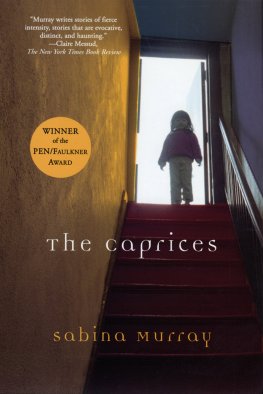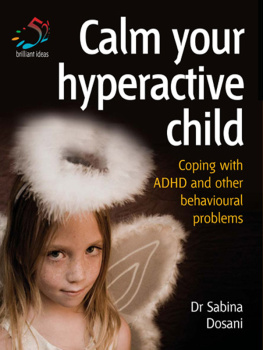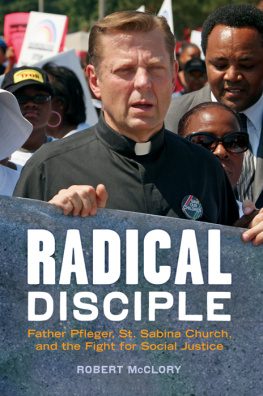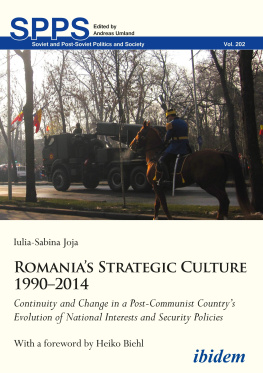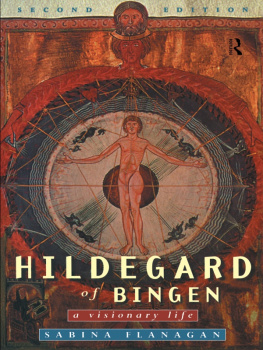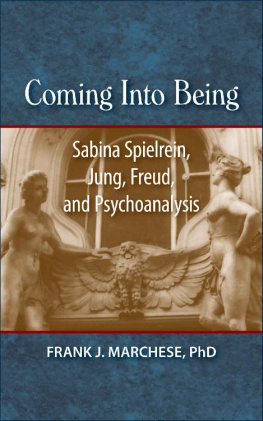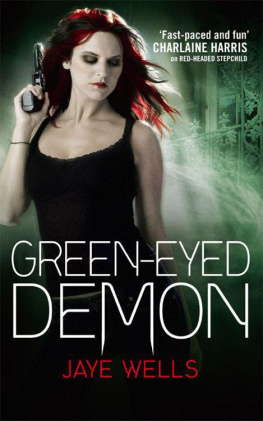Sabina Wolanski - Destined to Live
Here you can read online Sabina Wolanski - Destined to Live full text of the book (entire story) in english for free. Download pdf and epub, get meaning, cover and reviews about this ebook. genre: Non-fiction. Description of the work, (preface) as well as reviews are available. Best literature library LitArk.com created for fans of good reading and offers a wide selection of genres:
Romance novel
Science fiction
Adventure
Detective
Science
History
Home and family
Prose
Art
Politics
Computer
Non-fiction
Religion
Business
Children
Humor
Choose a favorite category and find really read worthwhile books. Enjoy immersion in the world of imagination, feel the emotions of the characters or learn something new for yourself, make an fascinating discovery.

- Book:Destined to Live
- Author:
- Genre:
- Rating:5 / 5
- Favourites:Add to favourites
- Your mark:
- 100
- 1
- 2
- 3
- 4
- 5
Destined to Live: summary, description and annotation
We offer to read an annotation, description, summary or preface (depends on what the author of the book "Destined to Live" wrote himself). If you haven't found the necessary information about the book — write in the comments, we will try to find it.
Destined to Live — read online for free the complete book (whole text) full work
Below is the text of the book, divided by pages. System saving the place of the last page read, allows you to conveniently read the book "Destined to Live" online for free, without having to search again every time where you left off. Put a bookmark, and you can go to the page where you finished reading at any time.
Font size:
Interval:
Bookmark:


In loving memory of my parents, Sala and Fischel Haberman, my brother, Josek, and grandparents, Chana and Joel Kulawicz .
And for my children, Josephine and Phillip: having you made sense of my life .
Alas for those who cannot sing, but die with all their music in them. Let us treasure the time we have, and resolve to use it well, counting each moment precious a chance to apprehend some truth, to experience some beauty, to conquer some evil, to relieve some suffering, to love and be loved, to achieve something of lasting worth .
Shaarei Teshuvah Gates of Repentance
Growing up
The Russian occupation
Pogrom
Belzec
Imek
August Aktion
Ghetto
Hiding
Discovery
The camp
The forest
The end of the war
Liberation
Desperate times
Marriage
Rza
Janek
Zdenek
Bondi
Divorce
Hildebrands trial
Adrian
Queen Street
Kjeld
Remembering
Berlin



I GREW UP IN the foothills of the Carpathian Mountains with the smell of oil in my nostrils, dreaming of Paris. My mother was a romantic. Her own exuberant nature was channelled into running the wholesale business that she and my father owned and into caring for her children. We lived in Boryslaw, a hard-living oilfields town in eastern Poland, and to my knowledge she never travelled beyond our backwater province. But she found it utterly natural to suppose that her saucy little daughter, Binka, would one day take the French capital by storm.
I did get to Paris, and as my mother had promised, found it was my kind of town. That was in 1948, and the doors of the world were just beginning to open for me. I was young and in love. I was intoxicated by the air. I could breathe without fear. It wasnt the smell of oil I wanted out of my nostrils when I left Poland, but the paralysing stench of fear and death. Yet even as I was joyfully diving into a swimming pool on the banks of the Seine, wearing that seasons sensation, the bikini, I would have given anything to be able to go home to Mama. Mama was dead, as were my brother and my father, and any possibility of life for me in Poland. Hitlers Third Reich had seen to that.
As the decades rolled over I returned to Paris from my new home in Australia many many times. It still is my kind of town. How strange then, how surreal, that now, at this end of my life, when I look at what it all adds up to, it is Berlin, not Paris nor Sydney, to which I must give the starring role.
My mother never spoke to me much of Berlin, though German was her second language and German culture almost as familiar to her as our own Polish culture. Her favourite brother, Adolf, lived in Berlin between the two wars. I remember him coming to Boryslaw to say goodbye when he emigrated to America in 1936. By the time my parents were ready to follow him, it was too late. Our family stayed in Boryslaw, and what came next is, as they say, history.
My mother, my father and my brother were murdered by Hitlers brutes. I, Sabina, daughter of Sala and Fischel Haberman, and younger sister of Josek, survived. More than survived. Ive lived, and lived well. And though I never took Paris by storm, I did take Berlin. I took it not as a pianist, nor as a writer, as Mama and I had dreamed, but as a Holocaust survivor. It wasnt something I expected to happen. When the war was over, I wanted to forget that I had ever shared the Jewish fate. Who didnt? I was never much interested in Judaism as a religion and even now I cant be sure what it means to be a Jew. But I was born to Jewish parents in 1927 in Poland, which made it my lot, as an adolescent girl, to confront the worst manifestation of evil in human history, and now that I am growing old I feel an urgent need to remember my and my familys part in that history. Remembering is painful, but not as painful as forgetting, and being forgotten.
So it was that on 10 May 2005, I stepped up to a podium to speak at the opening of Germanys Memorial to the Murdered Jews of Europe in the heart of Berlin. After much hand-wringing, the Germans chose to build their memorial, an open and permanent display of their shame and guilt, a stones throw away from where Hitler had his bunker. Beneath the memorials vast undulating field of stone pillars theres an information centre that documents the history of the Holocaust and, within it, our story, the story of the Haberman family of Boryslaw, together with the stories of 14 other families of European Jews.
Mama, can you imagine? I, little Binka, spoke for the Nazis six million Jewish victims and for those of us who survived their systematic torture and slaughter. If you could have seen me that day Graciously smiling and shaking hands, making small talk in English to the German foreign minister and the Israeli ambassador, in German to the German chancellor and the president of the parliament, the Bundestag before taking my place in the front row. I dont know if youd call it double vision, but while I was waiting my turn to speak, I could see what was happening in our town during the war. But Mama, I was in Berlin, in the lions den. I wasnt frightened, not any more. Nervous, yes, and apprehensive, but not frightened. I knew why I was there and what I had come to do.
My given name on the programme was Sabina Van Der Linden, a name which belonged to the man I call my third husband (but thats a story for later). My two adult children, who carry the name Wolanski, the name of my second husband, their father, were there in Berlin with me, with their children, my grandchildren. My fourth husband, a gentle Dane whose name I have never taken, was there too. I would have liked to call myself Sabina Haberman, but the time for that was long past. During the years when I hid my Jewish identity I was Sabina Kulawicz, the name of my maternal grandparents. I clung to it for many years after the Russians liberated our town. For years afterwards I didnt admit to being Jewish. When I rose to speak in Berlin that day it was as a longtime exponent of the art of disguise.
I began my speech with these words: Not even in my wildest dreams could I have dreamed of this extraordinary day. What I didnt say was that for many years the only dreams I had were nightmares, and that as a rule, I like to leave the past where it belongs. There is a Polish proverb co bylo a nie jest nie pisze sie w rejestr , which means, whatever was is not now . I have a talent for living in the present for which I am deeply grateful. But this was a time for looking back.
The media reported my words around the world, highlighting where I said that I did not believe in collective guilt. I borrowed the thoughts of the great writer and Nobel Peace Prize winner Elie Wiesel: The children of the killers are not killers, he wrote. His notion that the children of killers should not take the blame for their elders crimes, but are responsible for what they do with the memory of those crimes was not just a vague idea to me. My deep friendship with the daughter of an SS officer over four decades had helped to bring me to this understanding.
Font size:
Interval:
Bookmark:
Similar books «Destined to Live»
Look at similar books to Destined to Live. We have selected literature similar in name and meaning in the hope of providing readers with more options to find new, interesting, not yet read works.
Discussion, reviews of the book Destined to Live and just readers' own opinions. Leave your comments, write what you think about the work, its meaning or the main characters. Specify what exactly you liked and what you didn't like, and why you think so.

